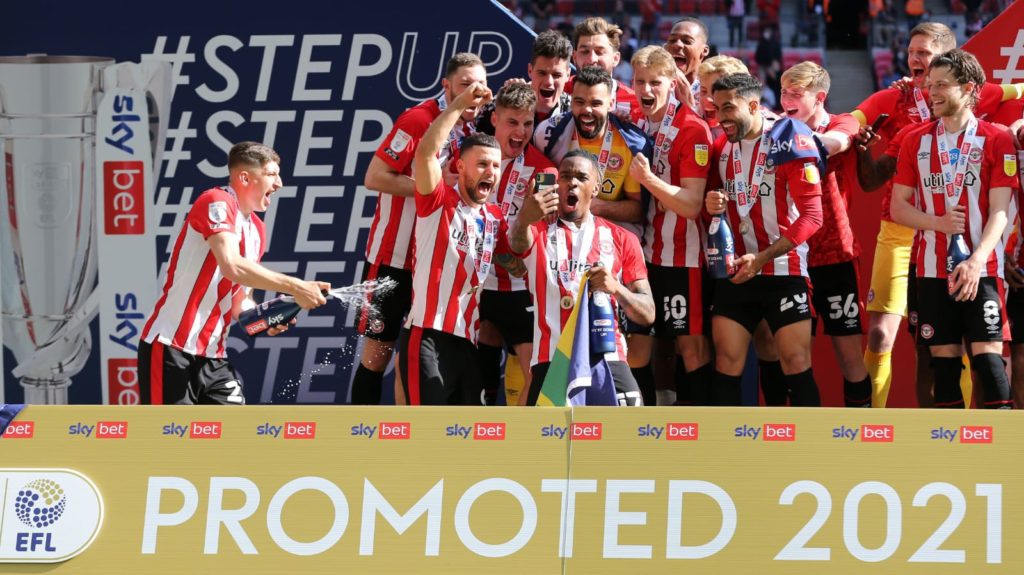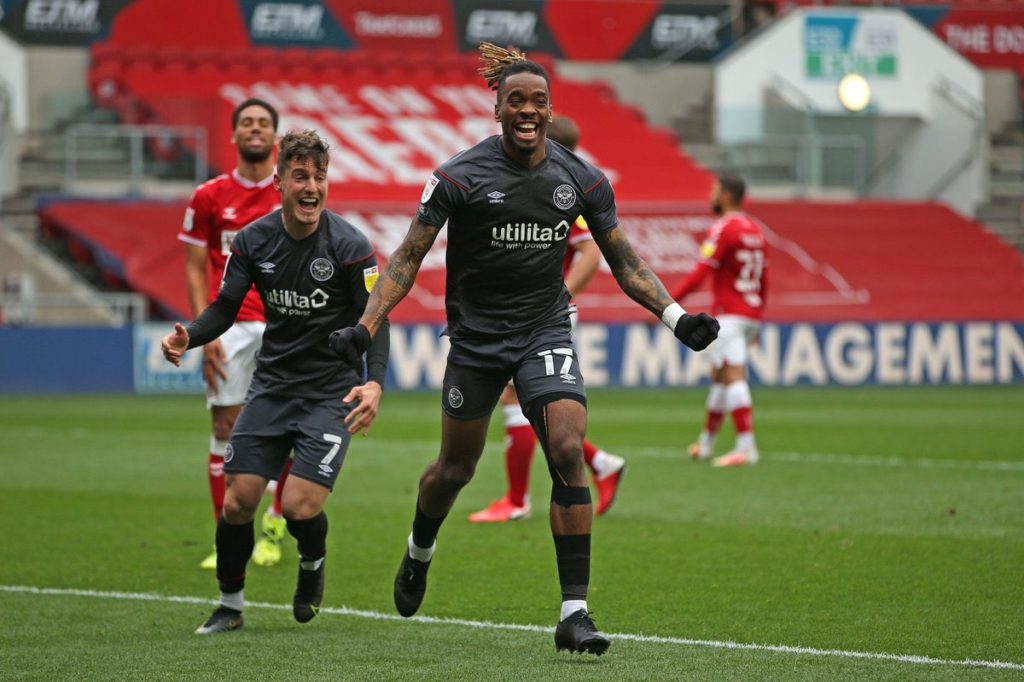Brentford FC: Competing with the Premier League’s Elite

Brentford FC are proving themselves a worthy opposition in the Premier League against the nation’s elite clubs. Despite a recent poor run, the West London side still sit comfortably outside the relegation zone, having been among the favourites for the drop at the start of the campaign.
The Bees have showcased their quality from the start of the season, defeating Arsenal 2-0 on the opening day, while also claiming wins against West Ham and Wolves and coming close to earning a point against the European champions, Chelsea.
However, their biggest success yet comes in the form of September’s thrilling 3-3 draw against Liverpool when goals from Vitaly Janelt and Yoane Wissa saw them claw their way back from twice being behind.
With positive net spends, statistical analysis and a shift away from traditional football academys, the Bees are paving their own way to success with revolutionary strategies.
Bet on Benham
Matthew Benham took over the club in 2012. A lifelong Brentford fan, coming from an educational background of Physics and Business, he made significant money in gambling.
With his companies SmartOdds and Matchbook, using data and statistical analysis, Benham soon attempted to revolutionise the running of a football club.
Benham trialled these strategies with Brentford’s Danish sister club, FC Midtjylland, who found success in the 2014/15 season winning their first ever Super Liga title.
The success of Benham’s statistical analysis approach then inevitably made its way to Brentford, where just six years later, Brentford would be in the Premier League.

This strategy has been nicknamed ‘Moneyball’, a byword for data use in sports and recruitment; first applied by Billy Beane, the General Manager of the Oakland A’s Baseball Team.
Moneyball means overlooking traditional, received wisdom around player scouting and using data to, crucially, find what the market undervalues.
Form is Temporary
The recruitment team at Brentford then applied this to the scouting of strikers. Rather than solely looking at a striker’s goalscoring record, they looked at strikers’ expected goals (xG).
A striker who has scored 20 goals is valued higher than a striker who has scored five, despite possibly having a lower xG and therefore the five-goal striker goes ‘undervalued’ and can be considered a bargain.
The 20-goal striker could have just been lucky, or faced poor goalkeepers, and there is no guarantee that the striker’s form can continue. If the five-goal striker begins to perform to his expected level, then he can outscore the 20-goal striker.
In the 2011/12 season Papiss Cisse made 14 appearances scoring 13 goals from 39 shots; a shot conversion rate of 33.33%, the best rate the league has ever seen.
However, Cisse holds one of the lowest striker shot conversion rates in the league’s history with an overall rate of 4.5% scoring just 37 goals from 242 shots. Could his form throughout his breakthrough season be deemed as pure luck?
By paying less than they should for players with undervalued high levels of potential, Brentford revolutionised their recruitment of players.
The challenge that follows for the coaches and manager is to then unlock this potential that they have bought into.
Unlocking Potential
After speaking to Brentford manager, Thomas Frank, he shared how the coaching team work with the players to unleash their potential high standards:
“I think every single time that we recruit a player we try to be very clear in what we demand from them and what we want from their specific roles.
“So, let’s say a striker, there’s some specific things you want in their link up play. Where we want them to be, what we want them to do, what skills that they need to train, what positions they need to have in the box, where we want them to arrive, how they need to work their way into the box, how we want them to press and then we constantly work on that in training.
“In the bigger games, more drills, a lot of video from training and from games, and constant reinforcement every single day.”
Thomas Frank brought Ivan Toney into the Championship for £5.6m, fighting off competition from Nottingham Forest and Celtic for the striker’s signature.

In an interview with Sky Bet, Brentford CEO John Varney explains that:
“One of our core values is that we take calculated risks.”
The arrival of Toney enabled the departure of Ollie Watkins to the Premier League to join Aston Villa, which was financially viable but left the risk of losing 25 goals a season from a proven goalscorer.
Within a season Toney became the Championship’s record season goalscorer, breaking Glenn Murray’s record with 31 goals.
Developing Identity
Enabling players to unlock their potential is becoming a key part of Brentford’s identity. From these six players, costing less than £15m, Brentford received a profit of £97.43m having sold them on to Premier League clubs.

These numbers show that Brentford’s players are becoming Premier League targets once the club have developed them into the top performers that the recruitment team had foreseen.
Being a club on the rise means that top teams will show interest in the players and in turn can lure Brentford’s star men to the nation’s top clubs.
“I think we have some top players, so I understand why other clubs are looking at them because they are very good with a top mindset,” adds The Brentford boss.
“I will say that we will close the door in January, let’s see what’s happening in the summer, it’s not only my decision. I just want to keep my players, train them and make them better, then others can take the decisions on that.”
Youth Football and Role-Specific Staff
Under Technical Director Robert Rowan, Brentford have overlooked football’s traditional academy set up and reshaped their approach to youth football opting for a Brentford B team instead.
This has enabled them to protect their talent from bigger clubs poaching young talent. Brentford’s B team, consisting of 17-21-year olds play outside of the FA’s elite player performance plan structure.
This restrains clubs of high financial influence from offering big money to take their youth away from them with a nominal tribunal set fee.
Brentford have also recruited role-specific staff to develop their chances at the top. Bernardo Cueva, a tactical statistician, provides real time data-based analysis of matches to affect in-game tactical decisions.
Anna West, a consultant sleep coach, works with the players individually to maximise performance through personally adjusted sleep programming.
Brentford’s training staff consist of a group of set piece coaches who are working with the team to utilise set-pieces as a significant way of scoring goals, proven successful in their victory over Arsenal. By way of example, FC Midtjylland scored 39% of their goals from set pieces to win their first Super Liga title in 2014/15.
Brentford’s alternative style is proving challenging for their Premier League opponents. Their promising start to the campaign has put them in a solid position to challenge for survival and secure their place – and the riches that it brings – in the best league in the world for a second successive season.